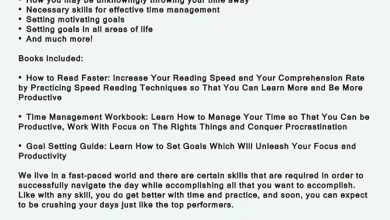How to Improve Your Problem Solving Skills for Conflict Management?

Conflict is common in our daily lives, be it in our personal relationships, school, or workplace. While some people are naturally adept at navigating conflict, others struggle with finding the right solutions. The key to effective conflict management lies in having strong problem-solving skills.
Effective conflict management requires strong problem-solving skills. Individuals can effectively manage conflicts in their personal and professional lives by understanding different types of conflict and their effects on emotions, developing communication and active listening skills, and utilizing conflict management strategies and styles.
This guide will explore ways to enhance your problem solving skills for conflict management and better manage conflict in your personal and professional life.
Benefits of Having Problem-Solving Skills in Conflict Management
Effective problem-solving skills are essential for managing conflicts in various settings, including personal relationships, school, and the workplace. Here, we will discuss the benefits of having strong problem-solving skills in conflict management.
Improved Communication
One of the primary benefits of having strong problem-solving skills is improved communication. Effective communication is crucial in resolving conflicts, and it involves expressing one’s thoughts and feelings clearly and listening actively to others. By developing problem-solving skills, individuals can learn to communicate more effectively and constructively and convey their opinions and ideas.
Better Conflict Management
Problem-solving skills also help individuals better manage conflicts. Conflict management involves understanding the different types of disputes, identifying the root cause of the conflict, and developing strategies to resolve it. With strong problem-solving skills, individuals can analyze complex situations, identify potential solutions, and choose the best course of action.
Increased Creativity and Innovation
Strong problem-solving skills also foster creativity and innovation. By looking at conflicts from different perspectives and considering various solutions, individuals can develop new and innovative ideas for resolving conflicts. Learning to think critically and objectively is essential for generating and evaluating different ideas.
Improved Decision-Making
Another benefit of having strong problem-solving skills is improved decision-making. Effective decision-making involves identifying the problem, analyzing the situation, and evaluating potential solutions. With strong problem-solving skills, individuals can make informed decisions and choose the best action to resolve conflicts.
Enhanced Interpersonal Skills
Problem-solving skills also enhance interpersonal skills, such as empathy and understanding. By learning how to listen and communicate effectively and actively, individuals can better understand the perspectives and needs of others. Developing empathy is essential for building stronger relationships and resolving conflicts amicably.
Greater Self-Confidence
Finally, strong problem-solving skills can increase self-confidence. Individuals can feel more in control of their lives by developing the ability to analyze complex situations and identify potential solutions. Also, learn how to manage their emotions and remain calm and objective in high-pressure situations, which is critical for effective conflict management.
How to Improve Problem Solving Skills for Conflict Management?
Improving problem-solving skills is essential for effective conflict management. Here are some tips to help you enhance your problem-solving skills:
1. Understand Different Types of Conflict
The first step in improving problem-solving skills is understanding the different types of conflict. Conflict can arise from various factors, including differing opinions, values, and goals. Understanding the root cause of the conflict, you can better identify potential solutions and choose the best course of action.
2. Develop Communication Skills
Effective communication is critical for resolving conflicts. With your communication skills, you can learn how to express your thoughts and feelings clearly and listen actively to others. You better understand the underlying issues and concerns involved in a conflict and work towards a resolution that meets everyone’s needs.
Read Also: How Social Media Affects Communication Skills?
3. Learn Active Listening
Active listening is an essential component of effective communication. You can better understand the perspectives and needs of others, which is critical for building stronger relationships and resolving conflicts amicably.
4. Utilize Conflict Management Strategies and Styles
There are several conflict management strategies and styles that you can utilize to manage conflicts effectively. For example, you can use a collaborative approach to work towards a solution that meets everyone’s needs or use a compromise approach to find a middle ground.
5. Practice Emotional Regulation
Emotional regulation is critical for effective conflict management. How to manage your emotions and remain calm and objective in high-pressure situations, you can better analyze complex situations, identify potential solutions, and choose the best course of action.
6. Develop Critical Thinking Skills
Developing critical thinking skills is essential for effective problem-solving. Learning to analyze complex situations, identify potential solutions, and evaluate different ideas objectively, you can make informed decisions and choose the best course of action for resolving conflicts.
7. Seek Feedback
Finally, seeking feedback from others can help you identify areas for improvement and enhance your problem-solving skills. Soliciting input from colleagues, friends, or family members, you can gain valuable insights into your strengths and weaknesses and learn how to improve your conflict management skills.
Some Common Obstacles You May Face When Improving Problem-Solving Skills For Conflict Management
Improving problem-solving skills for conflict management can be challenging, and you may face several common obstacles along the way. Here are some of the most common challenges and obstacles you may encounter:
Emotional Reactions
Emotional reactions can often get in the way of effective problem-solving. When emotions run high, remaining objective and focusing on finding a resolution that works for everyone can be challenging.
Lack of Communication
Effective communication is essential for resolving conflicts, but it can be challenging to communicate effectively when there is a lack of trust or openness between parties. Additionally, miscommunication or misunderstandings can further complicate the problem-solving process.
Limited Perspective
When dealing with complex conflicts, seeing the issue from all angles can be challenging. Limited perspectives can prevent parties from identifying potential solutions acceptable to everyone involved.
Resistance to Change
Change can be difficult for some people, and resistance to change can create significant obstacles when resolving conflicts. People may be unwilling to consider new ideas or approaches, which can hinder problem-solving.
Lack of Training or Experience
Problem-solving skills are not innate; some people may need more training or experience to handle complex conflict situations. This can make it challenging to identify potential solutions and make informed decisions.
Power Imbalances
Power imbalances can create significant obstacles to effective problem-solving. When one party has significantly more power or influence than the other, finding a resolution that works for both parties can be challenging.
Time Constraints
In some situations, time constraints can make it challenging to solve problems effectively. When there is pressure to find a solution quickly, parties may feel rushed and need more time to consider all options thoroughly.
Overcoming Challenges in Problem Solving Skills
Overcoming challenges in problem-solving skills is essential to successfully manage conflicts. Here are some strategies that can help you overcome common obstacles and improve your problem-solving skills:
Emotions
Step back and try to approach the conflict with a clear head. Avoid reacting emotionally and try to remain objective. If you find it difficult to control your emotions, consider taking a break and revisiting the issue when feeling calmer.
Communication
Improve your communication skills, including active listening and expressing yourself clearly and respectfully. Seek feedback from others and be open to constructive criticism.
Limited Perspective
Try to approach the conflict from different angles and consider different viewpoints. Brainstorm potential solutions with others to generate new ideas and approaches.
Resistance to Change
Acknowledge the resistance and try to understand why someone may be hesitant to change. Consider the benefits of the proposed solution and communicate them.
Lack of Training or Experience
Seek out training and mentorship opportunities to improve your problem-solving skills. Learn from others who have experience in conflict management and problem solving.
Power Imbalances
Recognize power imbalances and try to level the playing field. Consider bringing in a neutral third party to help facilitate the problem-solving process.
Time Constraints
Try to prioritize the most critical issues and focus on finding a resolution for those first. Consider involving others who can help you find solutions more efficiently.
Read More:
How To Improve Business English Communication Skills?
Problem Solving Skills For Project Managers
How Do People Develop Cross Cultural Communication Skills?
Applying Problem-Solving Skills to Conflict Management
Using problem-solving skills for conflict management is crucial in various areas of life, including the workplace, personal relationships, and interpersonal conflicts. Here are some strategies for applying problem-solving skills to these different types of conflicts:
Workplace Conflicts
- Identify the root cause of the conflict and gather relevant information.
- Collaborate with others to brainstorm potential solutions.
- Evaluate the potential solutions and select the most feasible option.
- Implement the chosen solution and monitor the outcome.
- Follow up with all parties involved to ensure that the conflict has been resolved.
Personal Conflicts
- Recognize your emotions and try to control your reaction.
- Communicate your perspective in a respectful and non-threatening way.
- Listen actively to the other person’s point of view.
- Brainstorm potential solutions that satisfy both party’s needs.
- Evaluate and select the most feasible solution.
- Follow up with the other person to ensure that the conflict has been resolved.
Interpersonal Conflicts
- Identify the underlying issues causing the conflict.
- Communicate openly and honestly with the other person.
- Listen actively and try to understand the other person’s perspective.
- Brainstorm potential solutions that address both party’s needs.
- Evaluate and select the most feasible solution.
- Implement the chosen solution and monitor the outcome.
- Follow up with the other person to ensure that the conflict has been resolved.
Final Words
Improving your problem solving skills for conflict management is an essential step toward effective conflict management.
By recognizing and overcoming obstacles, practicing active listening, and applying problem-solving strategies to different types of conflicts, you can become more confident in managing conflicts in other areas of your life.
Remember that conflicts are inevitable, but how you approach and manage them can make all the difference.



